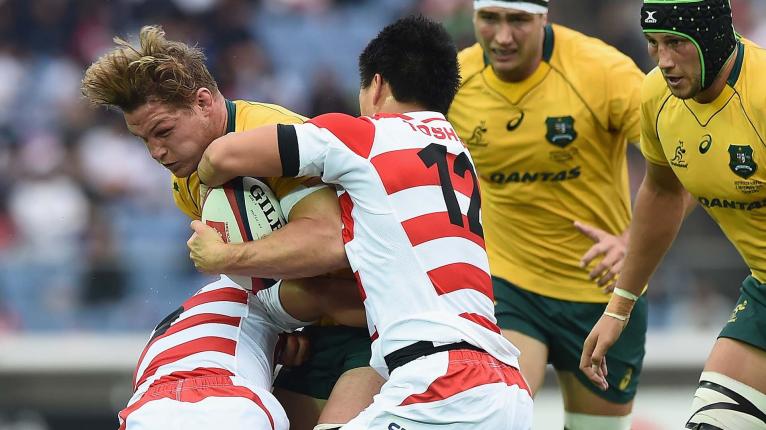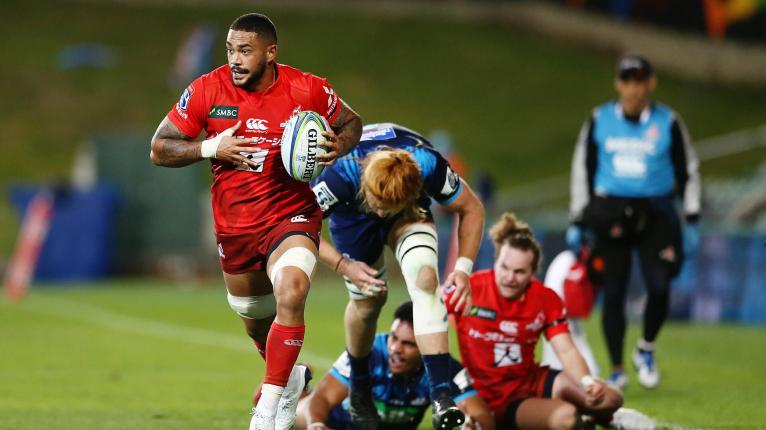Greg Cooper’s comments about New Zealand forging stronger relations with Japan are timely.
There are not many people in rugby more deserving of admiration than the former Baby Black.
As a teenager, Greg fought and won a brutal war against a rare and aggressive form of cancer, something that has enabled him to keep life’s trials and tribulations in perspective. He was driven through his ordeal by a desire to become an All Black, which he ultimately achieved and he has held some notable coaching jobs.
These days, he doesn’t keep a high profile – but when Greg Cooper says it’s time for New Zealand to start building on its relationship with Japan, then New Zealand should listen.
Cooper’s comments come at a time when Japan is taking its professional league to a whole new level, while their future moves on the international stage are the subject of much speculation.

Japan occupies a unique place at rugby’s top table.
The Miracle of Brighton aside, they have always been entertaining, but never a great force on the international rugby field. Fortified by overseas players and coaches they have had occasional significant success, but they have been criticized, most notably by Eddie Jones, for a lack of ambition to become a true world playing power.
But there is no such lack of ambition in their domestic game. They are on the way to creating one of the strongest leagues in the world, one built on such rock-solid foundations, so powerfully backed by the giant corporations, and so enthusiastically followed, that it has been able to attract a multitude of overseas talent, including some of the best players in the world.
Much of the impetus for this has come from the successful staging of the World Cup in 2019, which highlighted the strengths and appeal of Japanese rugby.
This has inevitably prompted interest in where they might end up on the international scene, with speculation ranging from the Six Nations, to the Rugby Championship, to staying right where they are, thanks.
Geographically, Japan’s fit is with the Northern Hemisphere, but the Six Nations doesn’t need changing. It is one of the great annual sporting competitions, superbly contested, charged with tribalism and tradition, and helped no end by short travelling distances. Not even the lead weight that is Italy has changed that.
Sure, it would be nice to see Georgia given a go, and there is talk of the Springboks joining in the future. Adding the World Champions is not inconceivable. It would make the series even stronger and add massively to the financial pull, but would also make it longer, inviting a scrap with the clubs.
But if it’s not Georgia or South Africa, then why would it be Japan?
A more logical alignment for the Japanese is with the Pacific region.

Already there are calls for them to be invited to the Rugby Championship, where they would add a fresh presence, and would hopefully gain strength from exposure to such a high level of competition.
And what about Super Rugby, a road once travelled without success?
The Sunwolves were always going to struggle. You got the feeling that while Japan were happy for a presence in Super Rugby, it was not a wholesale commitment; they didn’t want anything taking the shine off their own league and putting noses out of joint in the boardrooms of Toyota, Suntory, Toshiba and co.
Whilst there was some enthusiasm in New Zealand and Australia, South Africa were never so keen, highlighted by their reluctance to play in Tokyo, insisting that they be met halfway in Singapore, which rather defeated the whole purpose of having a Japanese team.
A scenario is developing where the likes of South Africa, Australia and New Zealand have the players, but Japan has the money and the resources.
Ironically, there is now a massive number of South African pros based in Japan, and the same thing is true of New Zealand.
At the moment New Zealand Rugby’s only means of dealing with the lure of the yen is to meekly grant sabbaticals to increasingly less deserving players to go and make some big cash before returning in time for the World Cup. It does nothing for Super Rugby to have players absent, or turning up late, and whether it helps the players other than financially is debatable.
A scenario is developing where the likes of South Africa, Australia and New Zealand have the players, but Japan has the money and the resources. At the moment it’s in the balance, but the way things are pointing, Japan could soon hold the whip hand.
Japan’s new League One competition will only strengthen that hand, and if NZR’s bid to bring in a major investor continues to be stymied, their grip on their playing strength will loosen further.
So the time is right for New Zealand and Australia to put aside petty differences and sit down with Japan to try and find some common ground.

One thing Greg Cooper is quoted as saying that is hard to agree with is some sort of open border approach, where New Zealand players can flit back and forward between Super Rugby and League One. That would destroy the NPC in quick time, and compromise both the Super Rugby teams and the All Blacks.
It would be better to try and create a Champion’s League scenario, bringing the top Super Rugby and League One teams from each country together each year.
It would be wrong to presume that Japan wants any of this sort of thing. They may be quite happy with their own set-up. A glance at England’s football fortunes will tell you that having so many foreigners in a great league doesn’t necessarily transfer to your own national fortunes, but that doesn’t seem to be of concern.
But if they do get serious about improving their international status, then entry to the Rugby Championship would be essential, and there New Zealand and Australia would have a strong bargaining chip.
Either way, Japan is on the rise, if not as a test team, but as a powerbroker, and as Greg Cooper suggests, it would be best to be working with them, not against them.


Comments
Join free and tell us what you really think!
Sign up for free